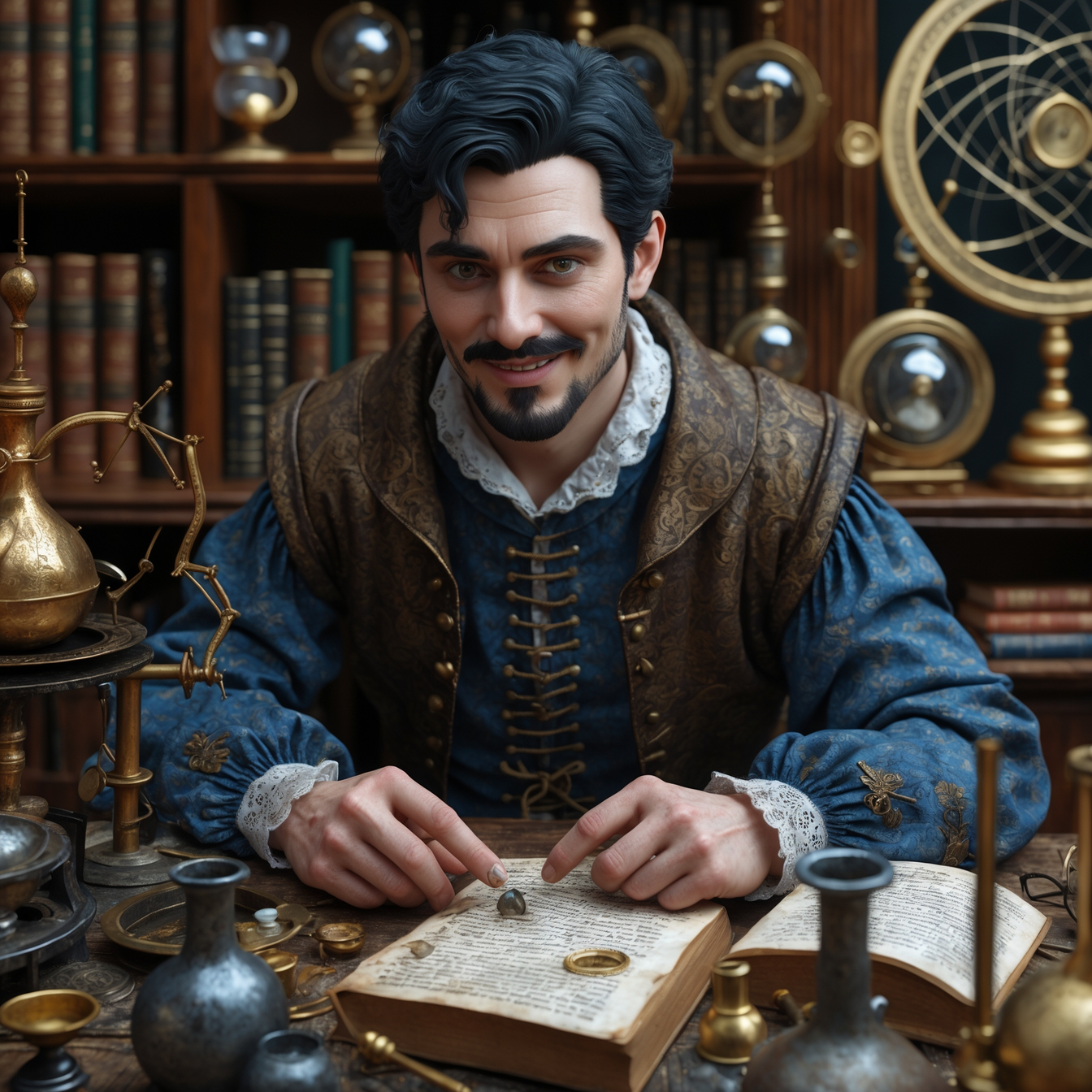Renaissance Weekly: An interview with John Dee

We caught up with the 20-year-old Trinity College fellow who's got all of Paris talking - and some people worried
RENAISSANCE WEEKLY: John, you've just returned from lecturing in Paris where crowds were reportedly overflowing from the lecture halls. How does it feel to be the talk of the continent at just 23?
DEE: It's rather extraordinary, I must admit.
When I began my lectures on Euclid's Elements, I expected perhaps a handful of serious scholars. Instead, the halls were packed to bursting - people standing in doorways, craning their necks to hear about geometric principles!
But you see, mathematics isn't just numbers and lines. It's the very language God used to construct the universe. When you understand geometry, you're reading the mind of the divine.
That's what I try to convey - that mathematics is the most noble pursuit imaginable, the key to unlocking all of nature's secrets.
RW: You turned down a prestigious professorship at the University of Paris. That seems like madness to most people your age. What's your thinking?
DEE: [laughs]
Everyone thinks I've lost my senses! My mentors Gemma Frisius and Mercator certainly raised their eyebrows.
But I have grander ambitions than simply teaching geometry to French students. England needs mathematical advancement - we're terribly behind the Continental scholars. I wanted to return home and serve the Crown, to make England a maritime power through superior navigation and astronomical knowledge.
Besides, I have... other investigations I wish to pursue. Mathematics connects to so many fields - astronomy, yes, but also what some call the mystical arts. The numbers don't lie: the celestial movements influence earthly affairs in ways we're only beginning to understand.
RW: Speaking of mystical arts, there were already whispers about that mechanical beetle you created for the Cambridge production of Aristophanes' play "Peace". Some are calling it supernatural. Are you a magician or a mathematician?
DEE: [grins mischievously]
Why must those be different things?
The beetle was pure mechanical construction - gears, pulleys, careful engineering. Yet because the audience couldn't comprehend the mathematics behind it, they cried "sorcery!"
This is precisely the problem! People fear what they don't understand.
True mathematics encompasses what others call "magic" - it's all natural philosophy. The movement of planets, the properties of crystals, the angles that summon... well, let's say that arithmetic and geometry have applications beyond simple measurement.
I'm merely following knowledge wherever it leads, whether that's calculating star positions or understanding the numerical patterns that govern spiritual matters.
RW: You come from a Welsh family with royal connections and your father served King Henry VIII's court. How does your family view your unusual academic pursuits?
DEE: [frowning]
My father sacrificed considerably for my education, and here I am, a fellow of Trinity College with Continental fame before my twenty-first birthday!
However, I suspect he hoped I'd pursue something more... conventional. Perhaps join the royal administration, handle diplomatic correspondence, that sort of thing. Something that would pay the bills...or at least - pay his bills. It's a sore point.
My mother, on the other hand, has always encouraged my curiosity. She understands that someone with my capabilities must push boundaries. When I explain how astronomy can guide navigation or how mathematical principles can predict favorable times for important endeavors, she sees the practical value. Though I admit she grows concerned when I mention my interests in what Heinrich Agrippa calls "celestial magic" - but even that is simply applied mathematics!
RW: What's next for the young scholar who's already conquered Cambridge and Paris?
DEE: eyes lighting up
Oh, the possibilities are endless!
I'm developing what I call a "mathematical preface" that will demonstrate how geometry underlies all the sciences - natural philosophy, astronomy, navigation, even architecture and what scholars term "supernatural" studies.
I want to build England's first comprehensive scientific library, filled with manuscripts from across Europe.
And I'm convinced the Crown needs a proper mathematical advisor - someone who can read the stars for auspicious timing, calculate the best routes for maritime exploration, and understand the numerical harmonies that govern both earthly and celestial affairs.
England could dominate the seas if we properly applied mathematical principles to navigation and empire-building!
RW: Any final thoughts for our readers?
DEE:
Mathematics is the future, mark my words. Not just for England, but for human understanding of God's creation.
Whether you're calculating the trajectory of a cannonball, determining when to plant crops by astronomical signs, or seeking to understand the numerical patterns underlying spiritual revelation - it all comes back to mathematical truth.
I may be young, but I can see clearly that whoever masters these arts will shape the coming age.
[smiles confidently]
I intend for that someone to be me.
John Dee spoke with Renaissance Weekly at Trinity College, Cambridge, in the spring of 1550.
[Editors note]: He would later become Queen Elizabeth I's trusted advisor and one of history's most fascinating scholars - bridging the worlds of rigorous mathematics and mystical philosophy in ways that still perplex historians today.